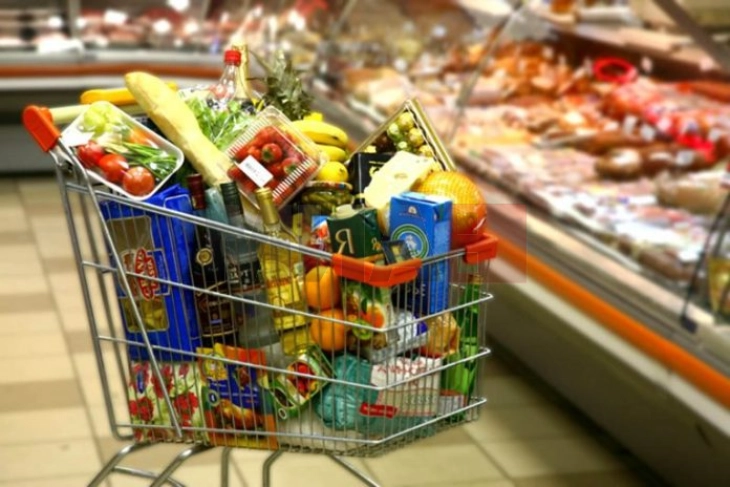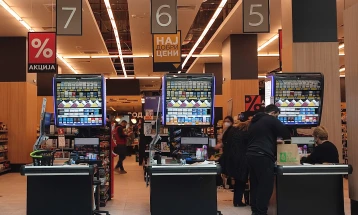Retailers submit price cut proposals for select products
- The economic chamber of wholesale and retail traders in food and non-food products, beverages and tobacco said Monday it has submitted proposals to Government aimed at ensuring effective measures that would cut the prices on certain groups of products.

Skopje, 17 February 2025 (MIA) - The economic chamber of wholesale and retail traders in food and non-food products, beverages and tobacco said Monday it has submitted proposals to Government aimed at ensuring effective measures that would cut the prices on certain groups of products.
According to the chamber, the proposals were drafted after a meeting Friday at the Ministry of Economy and Labor.
Meeting participants included Reptil representative Danica Blazhevska, who said on Friday that grocery retailers proposed the prices of only 100 or 200 grocery items be capped.

"We are asking that the large number of products covered by the measure be reduced to 100 or 200 that are truly essential," she said.
"Now it covers over 1,000 products. This creates problems for us in our daily price controls and in getting better prices from producers and suppliers."

Following the Friday meeting, the Ministry of Economy said the grocers' proposals would be reviewed before the government decided on any price caps on grocery items. "It was agreed at the meeting that the final decision would be made next week," the release said.
In response to the two consumers' grocery store boycotts spurred by the rising cost of living crisis, which were held on Jan. 31 and Feb. 7, the government had said the Ministry of Economy would draft a plan to set maximum gross profit margins of 10 percent on basic food products.
The plan was to include the 73 essential items covered in previous so-called "consumer basket" government price-control measures. The market intervention was to be expanded to detergents, baby formula and other essential non-food products with high profit margins, as well.
The decision was based on a six-month report from the State Market Inspectorate that showed grocers' profit margins reached over 20 percent on basic food products and over 30 percent on personal hygiene products. The report said that importers and distributors had even higher profit margins, some of them as high as 50 percent.
Photo: MIA Archive











